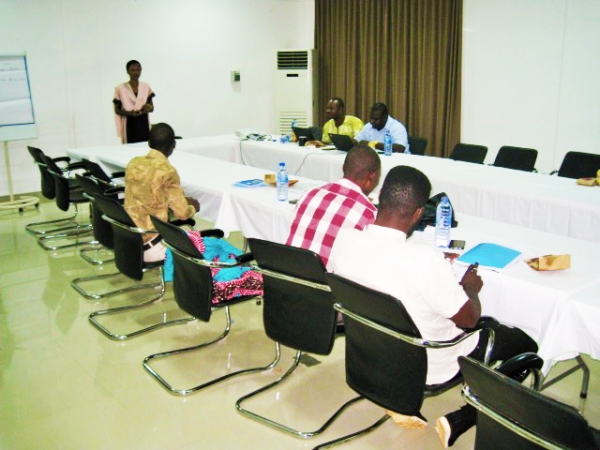School Health Education Programme (SHEP) Coordinators from the Tishegu Anglican Primary School ‘A’, numbering four (4), have undergone a two-day facilitator’s training on the Multiple Family Group (Dang-Malgu) Manual at BasicNeeds-Ghana’s office in Tamale. The training forms part of the Strengthening Mental Health and Research Training in Africa (SMART-AFRICA) Study, adapted in Ghana as Dang Malgu, which is funded by the National Institute of Mental Health (NIMH) and jointly implemented by BasicNeeds-Ghana, the School of Public Health of the University of Ghana and the University of Washington in St Louis, USA.
The workshop was meant to train the SHEP Coordinators to facilitate multi-family group meeting sessions of the study. The SMART Africa study is intended as an intervention for children with disruptive behaviour and their families develop healthy coping mechanisms and improve family responsiveness to the specific needs of the family members, especially the children with disruptive behaviour.
In his opening statement at the training workshop, Project Officer at BasicNeeds-Ghana coordinating the SMART Africa research, Kumbelim Kingsley, said that the role of the facilitator was at the heart of the Dang Malgu intervention. He said it for such a reason that the training was conceived to equip the SHEP Coordinators with the requisite skills to facilitate the Dang-Malgu sessions. He encouraged the SHEP Coordinators to fully participate in the training in order to make the study successful.
The training was facilitated by Fred Nantogmah and Adam Dokurugu Yahaya. At the beginning of the training, Programmes Manager of BasicNeeds-Ghana, Dokurugu Adam Yahaya, drew a relationship between children’s disruptive behaviour and their ability to perform well in school. He therefore reiterated the need for participants fully engage with the trainers in order to improve their facilitation skills.
The SHEP Coordinators were taken through the Dang Malgu study protocols as well as the ‘4Rs & 2Ss’ of the study manual. They were also introduced to facilitation techniques that they could use in their sessions to accompany the families throughout the 16 weeks of the Dang Malgu cycle. The coordinators also had the opportunity to practice the techniques in both English and Dagbanli within simulated sessions, where their performance was reviewed by their peers.
At the end of the two-day training, the SHEP coordinators scored positively in the post-training evaluation that was administered to them. They expressed their gratitude for being selected to take part in the training and for the responsibility to facilitate the Dang Malgu weekly sessions with the families.


